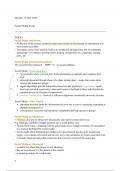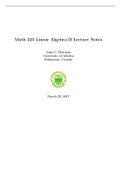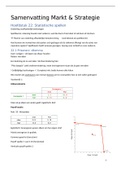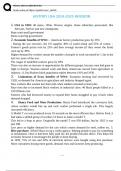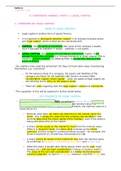Samenvatting
Summary - Social Media Exam
- Vak
- Social Media
- Instelling
- Rijksuniversiteit Groningen (RuG)
This document contains a summary of all the weeks throughout the Social Media course. It was made based on the slides as well as from the required papers to read. Good luck!!
[Meer zien]
